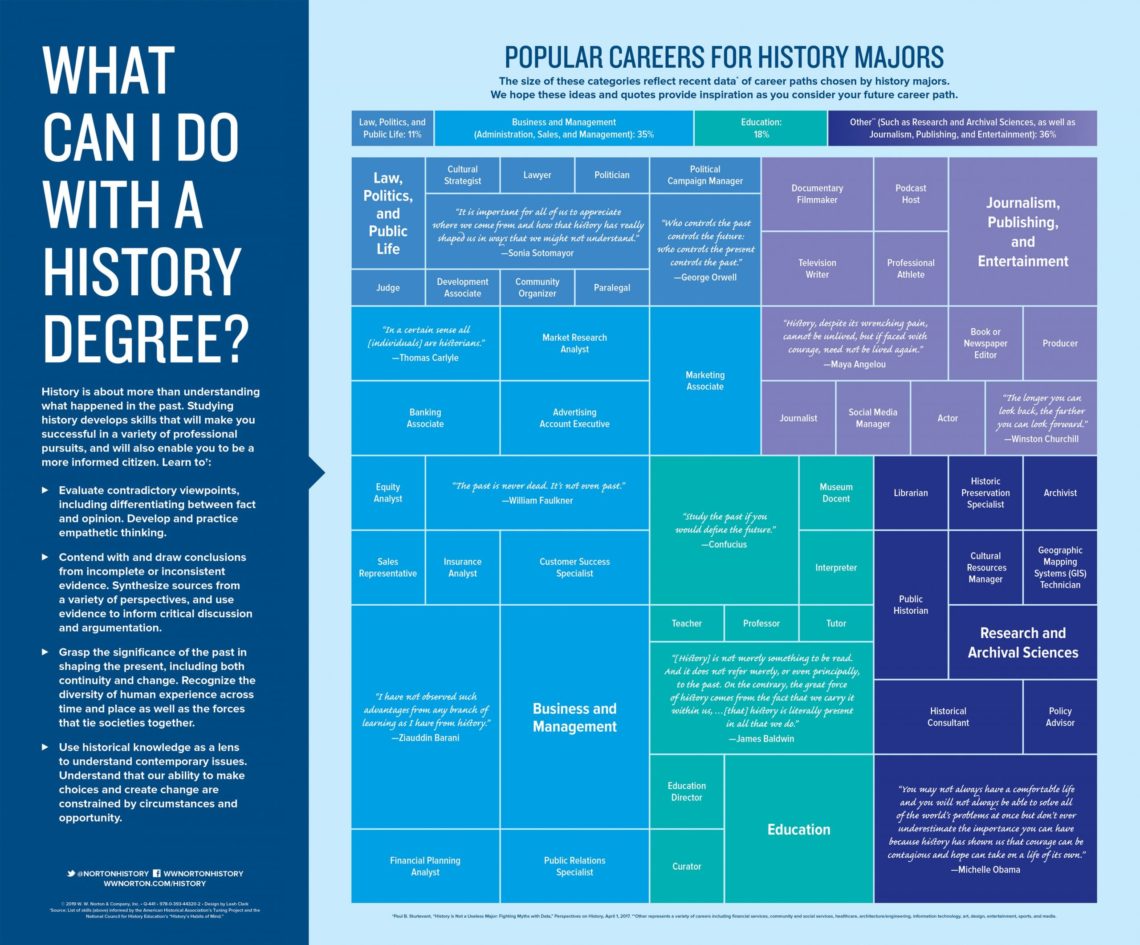The critical thinking, research and presentation skills you acquire over the course of your history degree are directly transferable to industries across the board, and can make you stand out as a top candidate.
Whether you’d like to pursue a career that’s directly related to degree – whatever your period of choice might be – or in another sector, there’s a wide range of options open to you once you graduate.
What career can I go into with a history degree?
There are a wide range of career pathways that would be directly related to your degree. For instance, if you’d like to delve deeper into a specific period and topic, carrying on into academia, after doing a masters and a doctorate, will allow you to expand on your research.
Other options you could consider which would make use of your passion for history include going into teaching, working in museums and managing collections, or as an archivist.
What other jobs can a history degree lead to?
Alternatively, other pathways open to history graduates include broadcast journalism, publishing, as well as other positions in media, where potential employers will value the communication skills you’ll have built up over the course of your degree. More generally, roles in marketing, business and the civil service are also among the career routes that have been explored by graduates in history.
In the case of many of these positions, it would be a good idea to seek out relevant internship or volunteering opportunities during your degree to build up experience before you graduate.
Is it possible to go into law as a history graduate?
Another route that’s open to history graduates is to pursue a career in law. For example, as a non-law graduate, you’ll be led to take a conversion course – the Graduate Diploma in Law – lasting a year, before going on to qualify as a solicitor through a training contract with a law firm and by passing the Legal Practice Course.



